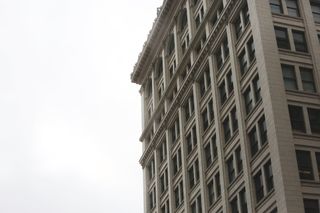Should I Extend?
Deciding whether a lease needs to be extended is quite straight forward. The Term (time left) of the lease is the greatest indicator of when the lease should be extended. As the length of a lease decreases the cost of the lease extension will escalate. Once the unexpired terms falls below 80 years marriage value is payable. Each year that passes after 80 years, the cost can increase by thousands of pounds.
A leaseholder has a legal right to extend their lease providing they are the registered owner of the flat for a period of more than two years.

The Term
Your lease has an expiry date: this is called the “Term”. Many leases will be either 99 years or 125 years form a specific date. Establishing the Term date will let you know how long is left on your lease. Once you have this, you can make an informed decision on whether a lease extension is required.
Any lease length can be extended; the longer the lease, the less cost of the premium. If your lease has 80 to 90 years remaining it is definitely time to start acting or preparing. Under 80 years remaining the cost increases steadily (roughly 10-20% every 2 years).

The Ground Rent
Unless there is a peppercorn rent, a leaseholder will pay ground rent to the freeholder. It is not uncommon for that ground rent to increase throughout the term at intervals. Some of these rents, such as those that double or are linked to the value of the property, can be onerous and recently, as seen in the Press, make it difficult to obtain a mortgage.
A lease extension buys out the remaining rent payable and the new, extended lease (under the 1993 Act - statutory lease extension) will be at a peppercorn (£nil) rent.
In certain cases, a revised ground rent can be negotiated through informal negotiations, to reduce the premium. If negotiated correctly this can benefit both the leaseholder and freeholder. (The Law Commission and the Government are looking at making all new leases subject to a ground rent of £10 per annum, so this may not be an option in the future).

The Reversion and Value of the Flat
If a lease is not extended the property must be handed back to the freeholder upon expiry of the term. The longer you wait, the closer the freeholder moves towards acquiring this interest and the higher the lease extension premium becomes. When a lease is extended the freeholder is allowing the leaseholder additional time to remain in the property; and will therefore have to wait longer to receive their reversionary interest. As such, the reversionary loss must be calculated to establish the realistic financial loss that arises from extending the term of the lease.
